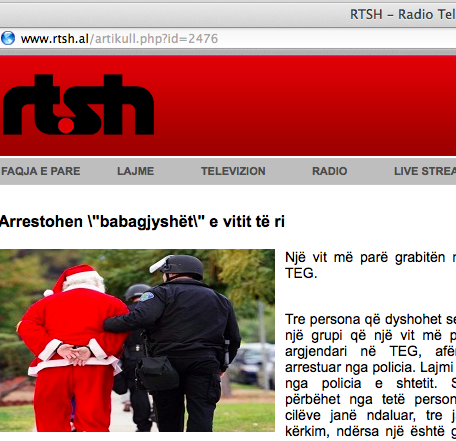The army inflicted heavy damage on the entire Future news group by torching the archives and the offices of the daily Al-Mustaqbal (15,000 circulation) and the Al-Sharq radio station.
This is not the first time that political confrontation has turned into, above all, a war on media and the freedom of speech. On the 25th of March 2003 during the invasion of Iraq, the United States bombed and destroyed the Baghdad offices of Iraqi TV (the prime government TV station under the Saddam Hussein regime). The attack was severely criticised by the international press and human rights organisations.
“The media should not become a target in these conflicts” said journalist Birgit Kaspar, the Beirut correspondent of major German public broadcasters such as ARD. “What happened to Hariri is unforgivable. Hezbollah’s objective was to humiliate Hariri and the ruling majority by closing their press organisation”.
Although, attacks are not only aimed at instruments of propaganda, attempts are also being made to silence individual journalists such as the director of Future News TV, Nadim Numla, who has received many death threats.
Now that an agreement has been reached between the Anti-Syria Lebanese majority and the Shiite opposition, it is time to ask whether news reporting will return to normal.
Kaspar reports that “the situation has returned to that as it has always been, in that news reports are live and snappy although heavily political due to the fact that most news organisations are financed by political parties and there are very few independent reporters. For news reported by the press and Lebanese media to be seen in an objective light, it is, in fact, necessary to read, watch and listen to numerous reports. It must also be underlined that only Hariri’s media empire was attacked.”
Peace, therefore, has also returned for journalists. “Last week”, Birgit reports “my husband and I did not leave the house due to sniper activity in the street. But that is now over”. Journalists are, however, complaining about how Hezbollah militants treat the media and news organisations. In addition to direct attacks on Hariri’s media empire, which in recent days has put free and objective news reporting into crisis, Hezbollah has now become secretive. “They do not want to talk to journalists. It is not possible to hold an interview or obtain direct statements. They decide when and what to say through their media, Al-Manar, or other means of communication. It also appears that obtaining information from them is more difficult for western media than for Arab. It is for this reason that we are forced to work with anonymous sources. Even civilians – above all those living along the borders – have become so frightened that they do not want to be filmed much less named.”
Certain people believe that the actions of the Hezbollah army can undermine and threaten the intellectual freedom and the pluralism that has always separated Lebanon from other Middle Eastern countries. “Hezbollah has not invaded the country and does not intend to seize power. I, consequently, do not see how it can undermine the freedom of thought and speech in Lebanon. Let’s not forget that it was Rafiq Hariri – the assassinated prime minister – who put an end to the freedom of the press in this country as the Syrians did when they were here”.
Translation: Richard Hall











































